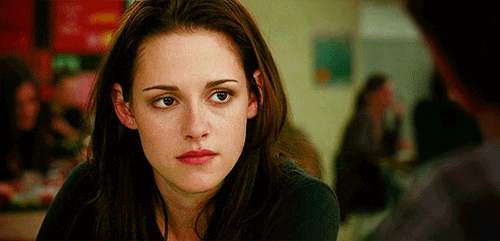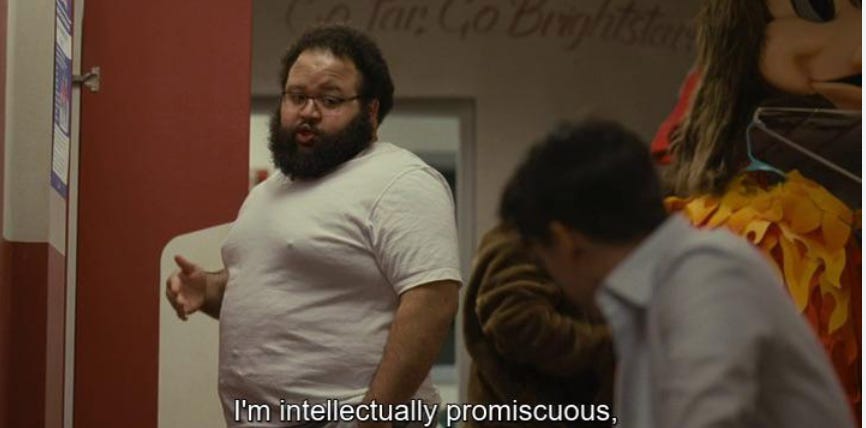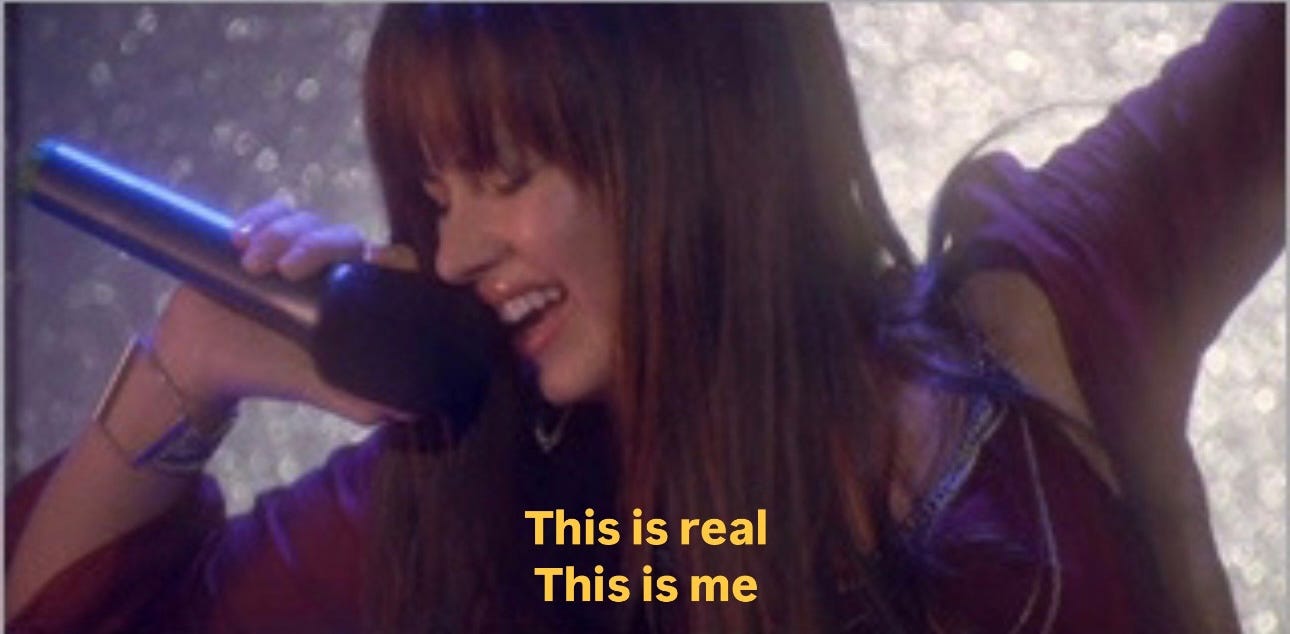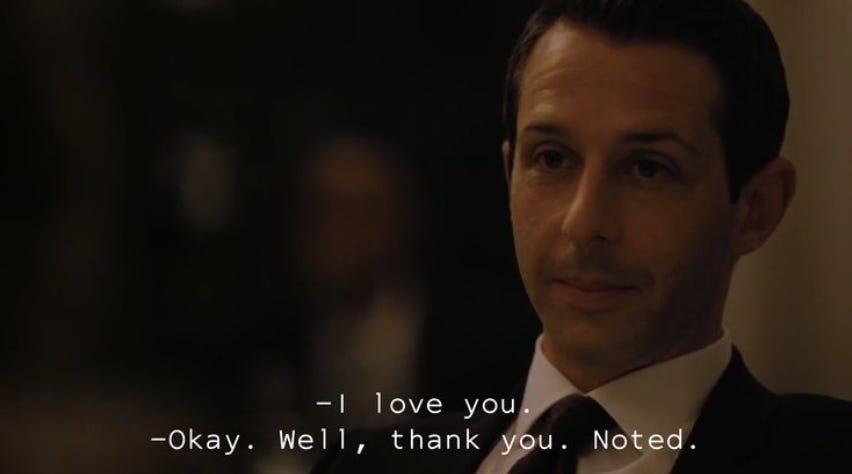
We’ve all seen it. We finish a book that left us less than enthused. Disappointed even. We head to Goodreads to do our obligatory update, ready to commiserate on our reading woes, only to find that the reviews are flooded with 5 star ratings and phrases like “I rated this 5 stars just for the vibes” and “this ended me” and “WOW THIS WAS SOOooOOoo GOOD”. We find ourselves wondering if perhaps we read a different book than everyone else.
Maybe you’ve read a book recently that you disliked, but you can’t put your finger on why. Maybe you’ve found yourself feeling like you’ve enjoyed the books you’ve read recently, but can’t remember key plot points or what the hell they were even about. Maybe you’ve been finding yourself stopping at “I liked it” or “it wasn’t for me” but you want to say more.
I would love to write another 3,000 word essay on why star ratings and “rating on vibes” are making book reviews and publishing industry marketing obsolete - but I’ll save that for another essay. Today I'll just address those readers (and watchers) who want to step up their critiquing skills and go beyond the vibes.
Approach With Purpose
This may be one of the more basic (yet controversial) takes on here to the “I’m just in it for the vibes” crowd. But here’s the thing, you can enjoy media while still viewing it through a critical lens. The better you get at engaging meaningfully with media, the more fun it becomes to approach it. Of course there’s a time and place for comfort watches/escapism, but if you’re here to hone your skill, start approaching things with intent. For me, part of the joy of reading and film, is the analysis of it all.
Stopping at “I liked it” or “it wasn’t for me” is emotionally stunting. A good reviewer is constantly asking themselves questions: why didn’t this work? What element contributed to my like/dislike? The acting? The pacing? The story? The writing? Force yourself to sit in the dislike and ponder your reactions.
for books: notice pacing, chapter length, prose, imagery. Is the writing flowery or is it dull? Does this add to the story, or hinder its execution? Are the characters believable? Do they fit into the world they’ve been created for?
for movies: notice scene transitions, do they flow well together as an overall picture, or does it feel more like a collection of scenes? Are the actors transforming into their characters, or do they look like “actor” playing a part? How is the dialogue? Is it stilted or awkward? How’s the delivery?
Notice the Craft
Become a lover and a prophet of the craft. Remind yourself why books and movies exist - someone loved a story so much they breathed it into being. Paying attention to the craft of acting, storytelling, costume design, character development, well-written dialogue, and other filmmaking/writing devices, will add an element to your critiques that you may be missing. Instead of simply saying you didn’t like a character, you will be able to highlight why. Notice the way the story is built around the characters - is it supportive of their arc? Is the story crafted in a way that supports its message or thesis?

If you find a director you like, study their work, how does their style inform their storytelling? Same with authors, are they just telling the same story over and over again with new characters? Or do they break their own molds while staying true to their style and voice? Appreciating and becoming knowledgeable about story structure and filmmaking will help you create more well-rounded takes. A thoughtful, well-informed review (even if you don’t agree with it) is infinitely more helpful when choosing a book or movie, than hundreds of repetitive ratings saying “it was so good! I loved it!”. Meaningful reviews help books find their perfect readers, and movies find their perfect audience. Don’t do them a disservice.
Start With The Review in Mind
Some folks are going to accuse me of being a wet blanket with this one. But the best reviews do not start after the credits roll or the last page is turned. The best reviews are happening before you hit play. I approach every movie and book with my review at the forefront. Every part of the journey is informing what I’m going to write. There is a way to do this without risking enjoyment, I promise.
Why is does that actor feel like the wrong fit for the part? Are you noticing something about the costumes or the editing that’s incongruous with the story? Start turning these questions into mini-reviews in your head as you go. It will help your final review come together at the end.
Once you start approaching media with the intent to review it, it will become second nature. You will start to notice things naturally that will go beyond liking or disliking. Don’t be afraid to take notes. Remind yourself to revisit a scene, or use sticky tabs to annotate your book so you can come back when you’re done. I’ll say it again: engagement creates enjoyment. You shouldn’t have to “turn your brain off” to enjoy something. Building your voice and honing your thoughts into fair reviews will inform your future media decisions. Once you start to appreciate what you like/don’t like and why, your TBR will have better books, and your watchlist will be more diverse in no time.
Forget the Stars
The 5 star rating system is obsolete. Everyone rates differently based on different technical/thematic elements, personal like/dislike, and an array of other random things that don’t lend themselves to accuracy or fairness. So, ignore the stars. When you’re ready to write your review, give it a subtitle instead of a rating:
“This doesn’t work and here’s why”
“An artistic approach that thinks it’s smarter than it is”
“Your next comfort read”
“If you’re a fan of ___ then you need to see this”
Using analogy and subtitles will help the reader detect your voice right away, and decide if they trust you or not. This exercise will also help you understand what you got out of the book/movie on a broad scale. From there, you can scale down and get into more detailed takes. You can still give a star rating once your review is written, but writing it first, without the stars in mind, helps keep you grounded in your opinions instead of adopting an unintended bias.
Stay Intellectually Honest
One of the most common faux pas I see in media reviews (for books especially) is a beautiful story being picked apart for reasons that don’t apply. If you are ill-informed on what a piece of media is trying to say, and then you chastise it for the wrong reasons, your review is moot. Take time to understand what you’re consuming. This means, again, reading and watching with intent. You can tell early on if a story is trying to be a character driven tale or a plot driven tale - so take note. I see a lot of young audiences viewing movies and reading books through analytical frameworks that don’t fit. If you read The Secret History expecting it to be a murder mystery, of course you’re not going to like it - that’s not what it is. Reviewing will help you notice what stories are trying to say earlier on in your approach.
Media interpretation requires a level of honesty with your own expectations. If you’re dismissing a piece of media for reasons that don’t fully account for what it was trying to say, it’s hard to empathize with your disappointment. Disliking something is completely valid (I say this a serial disliker), but if it stems from expecting a story being something it never promised to be, your dislike is not exactly valid. (I plagiarized parts of this section from my Easter Egg essay, which you can read here)
Stop Trying to Be Right
Just like the books and movies you’re exploring, reviews are subjective. The real thing that will take enjoyment out of analysis, is trying to be right. Yes, you should strive to be credible and knowledgeable about craft, context, and basic literary devices, but if you’re trying to be the review-iest review, it will become really boring (and really disingenuous) really fast.
Let the art speak to you.
The best reviews always have an equal balance of emotion and analysis. Your reviews should have elements of an emotional response - isn’t that why we’re all here?? But try to keep it grounded. It’s really easy to get carried away with paragraph after paragraph about why we hate something, it’s human nature. So make sure that while you’re injecting personality and color into your analysis, you’re also contributing something to the conversation. Guess what I’m about to say here? Don’t forget to highlight the “why”.
A well rounded, funny, fair review that has some personality is always going to be more helpful at informing choices or discussion than a scathing 5 paragraph essay or a 2 line recap in all caps that you LOVED IT SO MUCH (I’m guilty of this one lately) so try to land somewhere in the middle. It’s also worth noting here that not everything needs a dissertation. Reviews don’t have to be lengthy to be good, in fact, most well-written reviews are able to get their point across in as few paragraphs as possible. If you find yourself perseverating, go back and whittle down the main message (yep I’m saying it again) - WHY it did/didn’t work.
Stop Playing Detective
Again, I’m plagiarizing myself here - but remember that analysis is not about puzzle solving. Don’t let yourself get caught up in easter eggs and interconnectivity. Remember that stories are inherently simple. You don’t need to waste time trying to collect crumbs of fan theories and post-credit scenes to accurately review a work. Analysis is about defending your emotions on a platform of fact. The movie said this, and it made me feel this, and I think it’s because of this.
Simple.
Deconstructing a work within an inch of its life will not create resonance. Decoding and clue hunting is fleeting. Let the work tell you what it wants to say. You can read my essay about how decoding is changing media literacy here.
Write Your Reviews For You
Don’t write your reviews with an audience in mind. Write them to better your relationship with media and expand your tastes. As soon as you start speaking to a non-existent audience, you will start trying to perform. You may inadvertently censor yourself or use a voice that is inaccurate to who you are. Don’t be afraid of personality and flavor. Be yourself, and the people who resonate will follow. Having a recognizable voice will help other’s trust your taste and spark more meaningful discussions.
So, Why Review At All?
If you’re asking yourself “why review at all if I’m not writing to a particular audience and it’s just for me?” Well, there’s a few reasons why reviewing media is genuinely valuable. A main one being, it deepens your engagement - thoughtful engagement with art is something we cannot lose. Media illiteracy is on the rise, and art is being more misinterpreted than ever. Paying attention to why something works, not just whether you liked it, will make you a more well rounded media consumer - not to mention it clarifies your taste. You will stop picking up media that you don’t resonate with, and make time for what you enjoy.
Reviewing also helps people consider and re-consider art. A thoughtful review may encourage someone to try something new, or give something a second chance. Strengthening your analytical skills will go beyond the page or the screen, it will benefit you in every part of your life. Learning to support your opinions, defend them, and communicate them clearly, is a transferable skill.
And above all, reviewing honors the work. Approaching media with intent means you took it seriously - even if it ended up not working for you. It makes the art feel like a living, breathing part of the dialogue, not just disposable content.
Thanks for reading! I can’t wait to read your next reviews. I’ve been sharing my own reviews on Instagram, Goodreads, and Letterboxd for quite some time now - but coming to Substack has opened me up to so many more honest and witty reviewers. This post has been brewing in my drafts for a few months, and I would be remiss if I didn’t share some of my favorite commentators here who’ve inspired me and helped me hone my voice:
Ayan from Rent Free here on Substack. Ayan is SO funny, whip-smart, and has such a unique and hilarious voice. Ayan’s recent piece on how to be a critic is adjacent to this one and a must read! I can’t wait to read her next hot take.
Marcus from lit_laugh_luv on Instagram. He truly might be the funniest person I follow on IG. His takes are rooted in humor but always so sharp and so well considered. He deserves all the recognition.
Victor from Cinema Excelsior on Letterboxd and Instagram. He has incredible taste in movies and his reviews are always straight to the point, he highlights so many filmmaking techniques and writing expertise in a super approachable way! I have learned so much from him about the film industry - it has really informed how I review.
Sophie from That Final Scene here on Substack. Sophie is so well spoken and deliberate (but fair) that I am constantly in awe of how she is able to convey her opinions on film. Her 3 part Death of Cinema series is an ABSOLUTE must read for film lovers! I trust her takes implicitly.
Let’s be friends:










I loved this! I can honestly say following you and your reviews (on basically any platform) has made me a more critical reader and movie-watcher and it's honestly so much more fun than how, in my teen/early twenty years I just read book after book for the vibes and had no critical opinion ever. I always just wrote it off as "I just like SO many different things, I'm SO easy" hahaha. While in hindsight, definitely not the case. As you mention in this essay, on starting with the review in mind, after coming out of my reading slump last year I really really started doing this; I take my notes out and jot down things I (want to further) question or want to touch upon in my review as I go along, while reading.
This was a fun insight in how you tackle reading/watching and reviewing. I'm adding the reviewers you mentioned onto my list to check out!
You know it's going to be a good day when Tori is posting on Substack! I absolutely love your take on reviewing books and film, reading the tips on reviewing with intention is a fantastic way to break into new genres that you would have never considered in the first place. I found a huge change for me in how I look at literature is removing myself completely from Goodreads, I found Goodreads was a dumpster fire of vibe readers and it was too difficult to distinguish whether the reviews were genuine (or the people who leave reviews on books they DNF which I'm still on the fence on whether I agree or not). Using Notion has been a great tool for me to have the tracking side of Goodreads, but allow myself to be as critical as I please when reviewing books.
I would like to hear your takes about DNF'ing books and what are determining factors to either push through, or know you have had enough of a book/author